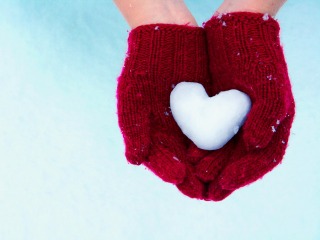I was thinking that this post would have a more inventive title, something more quirky, perhaps other-handed or perspectivally different, but I don't much mind. I want to talk about pride, hence this conversation with myself on the surface of a river. The words are floating, and you are reading it as you watch the flow flow.
Pride, then. I'm talking about the existence of a spectrum - there is extreme pride, which manifests as arrogance, self-importance, but somewhere earlier along the line, which is now a continuum, there is healthy pride, pride that is "taken", and manifests as dedication to the development of a particular discipline or ability. With these two points plotted on this linear graph - drawn against the black using a small concentration of green pixels - I want to reference my own pride.
See, here, I would begin expressing that I do not enjoy being proud. I used to feel like it was right to feel pride, to take pride in for things that I did well, for example, academics. Too, I used to feel like I could read people well, to a superior extent, and thought highly of myself to be able to discern that. Past tense. Now I just remember how it felt, to be proud, but no longer feel the object of the emotion is there. My ability to read people and distinguish emotions, and then aid with them, that was very helpful during high school because it marked out my maturity, yet now, in an older context, I feel my close friends are themselves able to read people, to tell how they are, and help, which is very useful, though I feel it depreciates what made me feel special before.
Recently, I met with a friend I had not seen for seven years. And I thought that I would get there and psychoanalyse him to see where he stood in the world. Turns out, although I felt the impulse to do it and read him, I didn't need to. He was quite open, and able to read me as well, perhaps, as I was able to read him. Books that read each other. Innovative. I enjoyed seeing him after all this time, and realised while with him that there was not much point in trying to sell myself as having had all these life experiences throughout the past seven years because they shaped me to have the character that I have, to be in the role I play, and it went the same for him. I found myself not needing to feel that pride. I am content with what I have been through, which what challenges I have faced and overcome, and what I am able to do. I am proud I have gotten to this point, but I don't feel the want to express that pride. Could I even call it pride then? I don't show people. I don't tell people achievements. I used to do it off-handedly, for example, I used to show off that I was smart by using big vocabulary. I still do that, actually. But not for the purpose of showing off, at least not consciously so, but rather because I find myself being able to express more with a wider range of vocab. With the friend that I met, he had a very wide range of vocabulary that he was comfortably using, which I enjoyed being in the midst of. For example, he used the word "pentecostal" which I'd not known the meaning of, but he could use it, and later when I looked it up, found that the context in which he used it in was appropriate. Anyway, off-topic. Let's undeviate.
My point up until now, if unclear, has been that I used to show pride, sometimes unconsciously and sometimes subtly so, in who I was and what I achieved, to impress others. And although I feel the urge to do it sometimes still, I have come to think that it no longer matters if I succeed more than others. There is always going to be someone superior at something, in one part or the other of their lives, but because everyone follows a different journey, comparisons between one person or the other seem fruitless and unnecessary. I can be happy that I am where I am, and I am, and I can be happy others are where they are, and I am. It no longer feel like there is any gain, any merit, in saying I am better than you at reading people, or at other things I feel I am great in, like navigating through a city for example. The actual ability has a use, and that is all that is needed to consider. Why think I know how to do something better than you, beyond the simple admittance of the fact? If you are more skilled, be more skilled. I think either way, it does not make either of us a better person, which is how I come to the conclusion that those things I took pride in, were tied to my identity, and that now, I realise they are not so important.
Am I losing my identity, then? Dramatic music and/or silence.
Can't lose what I never had. Can't lose what was never real. The only conclusion that can be drawn, is that the feelings of superiority that I drew from comparing myself to others and being "better" were falsities. So, pride then, when tied to identity, is falsity. So is there merit in taking pride, I now ask, in what I may be good at? Yes, if we loosely undefine pride and let it mean care for the development of that which we take pride in. Healthy self-respect, self-worth, knowing we are whole and appreciating that.
Right. There, conversation avec moi, avec moi, over.
More plays
2 years ago

